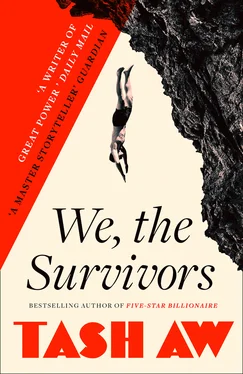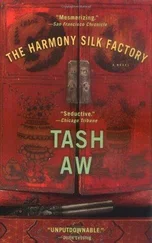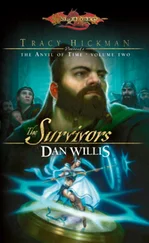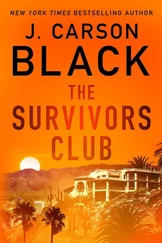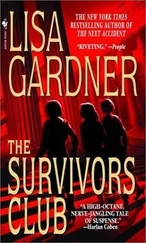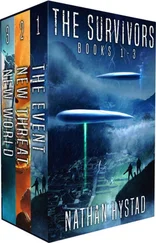My arm ached, I was moving in a funny way, one side of my body less mobile than the other. I realised that I was still holding the piece of wood, the length of tree branch that had felt so light in my hand just a short while ago but now seemed to weigh a hundred pounds. During the trial, when people in court referred to the murder weapon that was never retrieved , I remembered the damp two-foot piece of wood that I held that night. It was just a fragment of a tree. A few hours earlier, when I’d struck the man for the first time, the broken length of wood had seemed so insignificant that I thought it incapable of causing pain. I expected it to shatter, I expected the man to laugh at my ridiculous choice of weapon. Now it felt as if I was lifting an entire tree, the weight of the world clinging to its roots. I raised my arm, wanting to throw it far out into the middle of the river, but suddenly I found that I had no strength left in my body. It slipped from my grasp and fell just a few feet away.
I realised after a while that the police were not going to arrive. No one was going to come for me. Not that night, not the following day, and maybe not for weeks. In the end it took them more than two months to arrest me – but you already know that. You also know why it took so long. When the victim is that sort of person, the police don’t really care. Yes, that kind of person. A foreigner. An illegal. Someone with dark skin.
Bangla, Myanma, Nepal. When the police come it’s all the same to them. Even Africa. It’s as if they all come from one big nameless continent. Back when I was living in Puchong, I saw a group of Africans by the side of the road, a dozen men. Some were sitting on the pavement, others were standing up, laughing, joking, drinking beer and liquor. One or two were dancing – they had a big portable set that played their tunes so loudly I almost couldn’t hear my own music. I was listening to Jacky Cheung on my phone – back then we only had those small Sony Ericssons that made every song sound crackly, as if you were listening to it on the radio in a faraway country. Maybe you’re too young to remember those phones. I was on the other side of the road, outside the 7-Eleven, eating a Ramly burger with Keong. This was seventeen, eighteen, maybe even twenty years ago. Back then you didn’t see so many Africans around. People didn’t know anything about them – which countries they were from, why they’d come here. Ask anyone what they knew about Africa and they’d say, Lions .
Keong was looking at his phone, pretending he wasn’t interested, as if he’d grown up with black people. But he couldn’t help making comments. Wahlau, Muhammad Ali brought all his friends! I remember laughing, even though I didn’t really find it funny. Most probably I made some comments too. It was so long ago, I don’t recall. There was a light breeze that night, I remember that. Next to us an old Indian stallkeeper was clearing up his stand for the night. Business was slow, there weren’t many people out on the street. ‘Every Friday night,’ he said. ‘Every week they come here and raise trouble. Friday supposed to be holy day – these guys , they don’t respect anything.’ In fact he didn’t say these guys , he said these Mat Hitam . Better not translate that.
I said, ‘They’re Nigerian.’ I’d seen an article in the Nanyang Siang Pau about Nigerian students coming to Malaysia, falling into debt after they graduated and being unable to buy a ticket home. I remember thinking, Must be really desperate to come to college here.
‘Shut your mouth,’ Keong said. ‘Nigerian your ass. You don’t know anything.’
As I looked at them, I got the feeling that they were floating through the city, unattached to anything around them. Their music was the only thing that seemed real – a link to their home. That was why they were listening to it so loudly, I thought. But they were thousands of miles away, and something in the way they talked to each other, shouting over the music and laughing in the half-dark street, made me realise that they would probably never return to where they came from. And suddenly I thought, I am just like them, I am floating through life.
‘What the fuck,’ Keong said. There was a note of excitement in his voice. Two guys in the group had started fighting, that kind of messy scuffling that happens when people are drunk, not really a proper fight, just grappling with each other, tumbling into the road. A car passed by and had to swerve to avoid them. The driver leaned on the horn for a long time – it was a Kancil, the noise of the honking as it drove off was high-pitched, like a cheap child’s toy that you buy in the night market. It made us laugh. A few minutes later the men were joking and talking again as though nothing had happened. We stopped looking at them – they were nothing special, they were just like us, just hanging out with friends. Keong was texting his new girlfriend, reading out her messages to me. Of course he was exaggerating. I knew she didn’t think he was the handsomest guy in the world. In fact I’m sure she didn’t even exist. But I went along with it – that’s what you do with old friends. You take an interest in their lives, even when they’re lying.
Then suddenly we heard a commotion – more shouting. We looked up from our phones and saw three police cars and another three unmarked ones surrounding the Nigerian guys. Everyone was yelling. There were a lot of cops, I couldn’t count them. They pushed one guy against a car. I could hear him shouting in English, No drugs no drugs I don’t have anything! But they handcuffed him anyway and made him sit on the kerb just like his dozen or so friends. At first the Nigerians were arguing, shouting at the police. They were big guys, much taller than us, and maybe they thought they could get out of trouble by being loud, but they didn’t know what the police were like. I couldn’t see what happened, there were too many bodies in the way, but all at once everything became quiet, and one of the men was lying on the ground, one arm around his head, the other one stretched out as if he was reaching for something. He wasn’t moving. After a while, some of them started to plead – we could hear them from across the street. Their voices were soft and rich and deepened each time they said the word Please. Please. The sound of the word made me feel as if I was stepping off solid earth and falling into an abyss. I wanted it to stop.
‘Just pay them,’ Keong said. ‘Get all the damn cash out of your pockets. Just pay .’ But we knew they had no money to bribe the cops. I’m sure they understood the system just as well as we did, they just didn’t have the money. Keong shook his head. ‘ Aiyo cham lor , lock-up for you tonight my friends.’ When you’ve grown up in the kinds of places that we have, you know what’s in store for you.
A big police truck arrived and picked up all the Nigerians. While it was still parked, one of the cops came over to buy some cigarettes. We asked him what was going on. He said, ‘Local people – we don’t like seeing Mat Hitam around.’ He lit a cigarette with a silver Zippo lighter. ‘We’re like the town council, just cleaning the trash off the streets.’
We laughed loudly – as if we were best buddies with him. Yeah, clean it all up . I can’t remember what else we said, can’t recall exactly what kind of jokes we made, but we wanted the police to think we were on their side. We knew they wouldn’t be hassling us that night, that there was someone else they were more interested in. Even though I was young, I thought I already understood the way things worked. But that night made it clear to me, like the words to a song by a foreign singer. You know the melody by heart, but you can’t quite make out the words, you can only understand fragments of English here and there, you sing a line or two from the chorus and sort of understand the message, but then one day someone explains the words to you, and suddenly everything clicks into focus, the whole song makes sense. It’s no longer just a pretty tune, it’s got meaning – and that night, the message became clear: no one wanted to know about you if you were dark-skinned and foreign. Who would come looking for you if you were thrown in Sungai Buloh jail? Or if you sank slowly to the bottom of a river? No one would ask questions. Not until it was way too late.
Читать дальше
